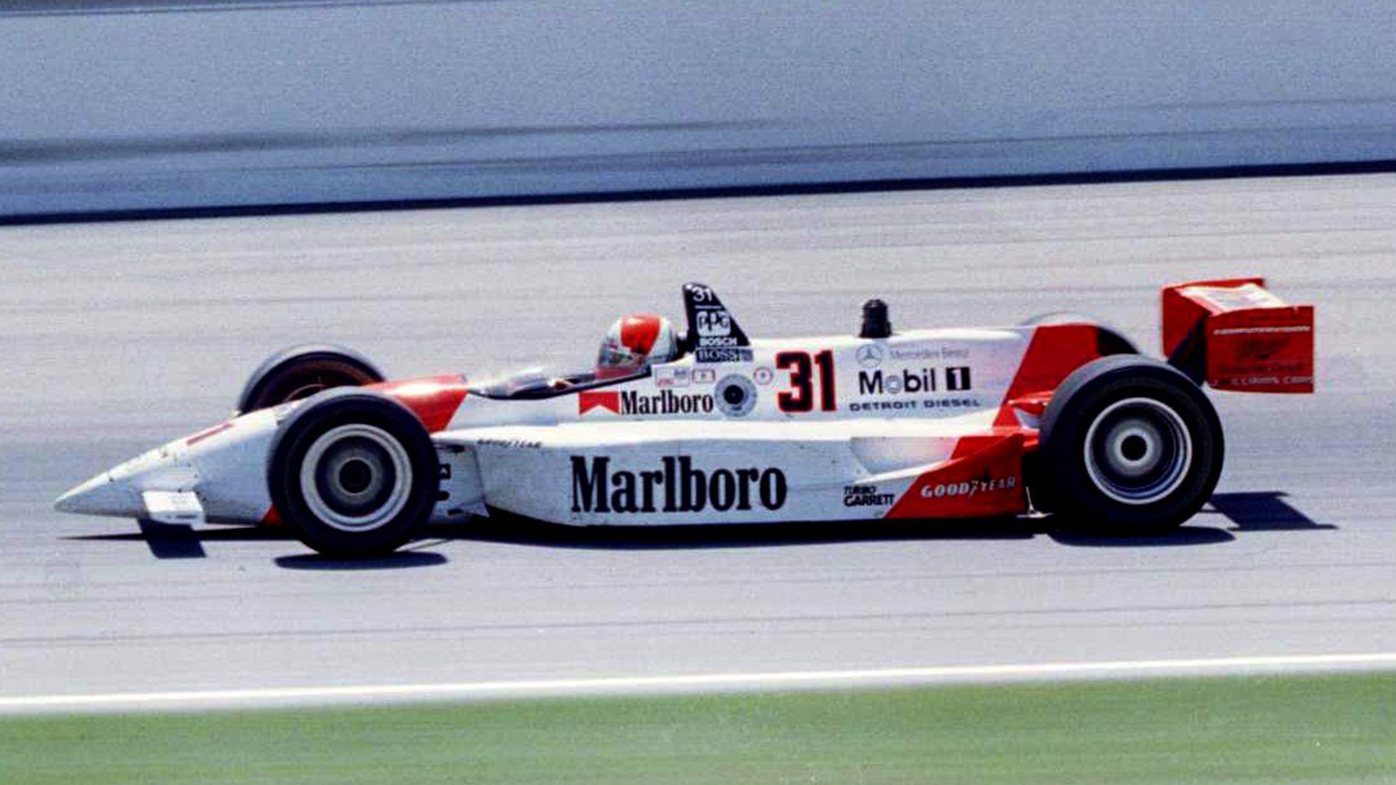
"I felt more isolated and alone than at any other time in my life," Al Unser Jr wrote in his autobiography, A Checkered Past.
"The choice was stark: the bottle or the gun? I chose the gun. My fiftieth birthday seemed like a good time to end it all.
"After I put the gun to my head, I couldn't pull the trigger. I slowly set it back down."
READ MORE: 'Terrible' airborne crash mars Indy 500
READ MORE: Ricciardo's F1 season from hell continues
READ MORE: Devastated captain's admission after blunder
On the surface, Unser Jr had it all. But as the passage above confirms, the two-time winner of the Indy 500, two-time IndyCar series champion, and member of one of America's most famous racing dynasties was battling more than his opponents during his storied career.
What didn't come to light until the latter stages of his time in racing was the drug addiction and alcoholism. His life, so perfect to his legion of fans, unravelled to the extent that suicide seemed the only way out.
Stan Sport is the only place to watch the 2022 INDYCAR Series with every race streaming ad free, live and on demand. Start your free Stan Sport trial here!
Speaking to Wide World of Sports about the downward spiral that played out through his 30s and 40s, Unser Jr laughed when it was suggested the last 10 years have been like a second chance for him.
"Are you kidding me? I've been given third and fourth chances," he said.

As he recounted in the book, Unser Jr had reached a point where he felt he just couldn't continue.
"I was covered in a darkness that doesn't happen overnight," he wrote.
"It was a long journey from the top of the tallest mountain to the lowest trench in the ocean. The weight of each failure was crushing.
"When did I become a drug addict and an alcoholic? I don't know. There is no simple test to confirm you are an addict. I had a long, slow fall from grace."
The IndyCar star
Unser Jr was a fully fledged star of the American racing scene by the mid-1980s. He came from racing royalty - his father, Al Unser, became the second man ever to win the Indy 500 four times, while his uncle, Bobby, won the race three times.
Little Al, as he was known, was runner-up in the 1985 IndyCar championship, beaten by a single point by none other than his father.
He finished second again in 1988, before breaking through to claim the title in 1990. He added another championship in 1994, the same year he won the Indy 500 for the second time, having taken his maiden win two years earlier.
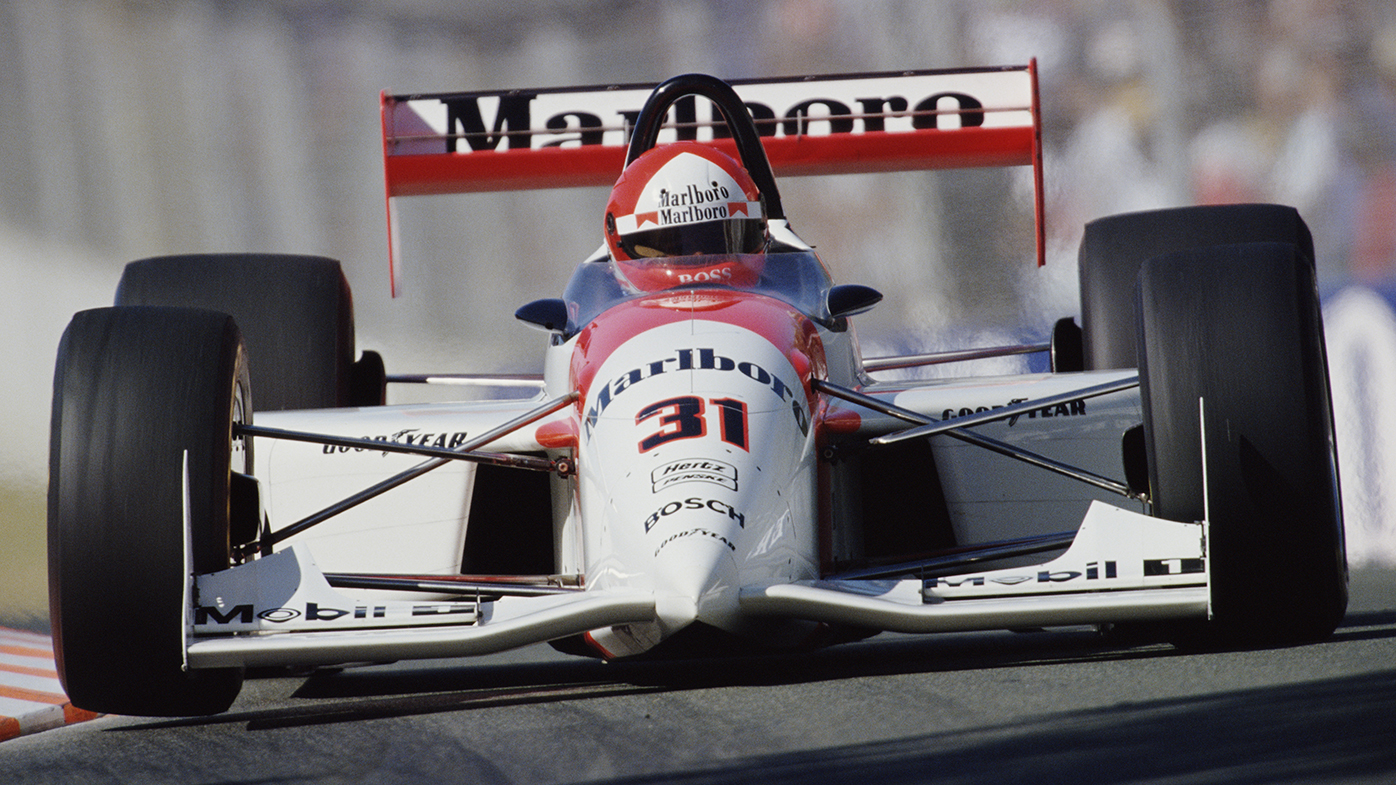
"I feel truly blessed that I was able to achieve what I accomplished," he said.
"There's so many people that don't even qualify for the Indy 500, let alone win it twice.
"My career as a successful IndyCar driver, I had a lot of fun doing it. My life has been a true blessing."
But as he admits in the book, there were two Al Unser Juniors during these good times. The world saw the successful race car driver at the top of his game, winning one of the world's most prestigious races.
His private life, however, was already unravelling.
"My personal life was a struggle. Too much partying, too often. Too many women. I was weak as a father," he wrote.
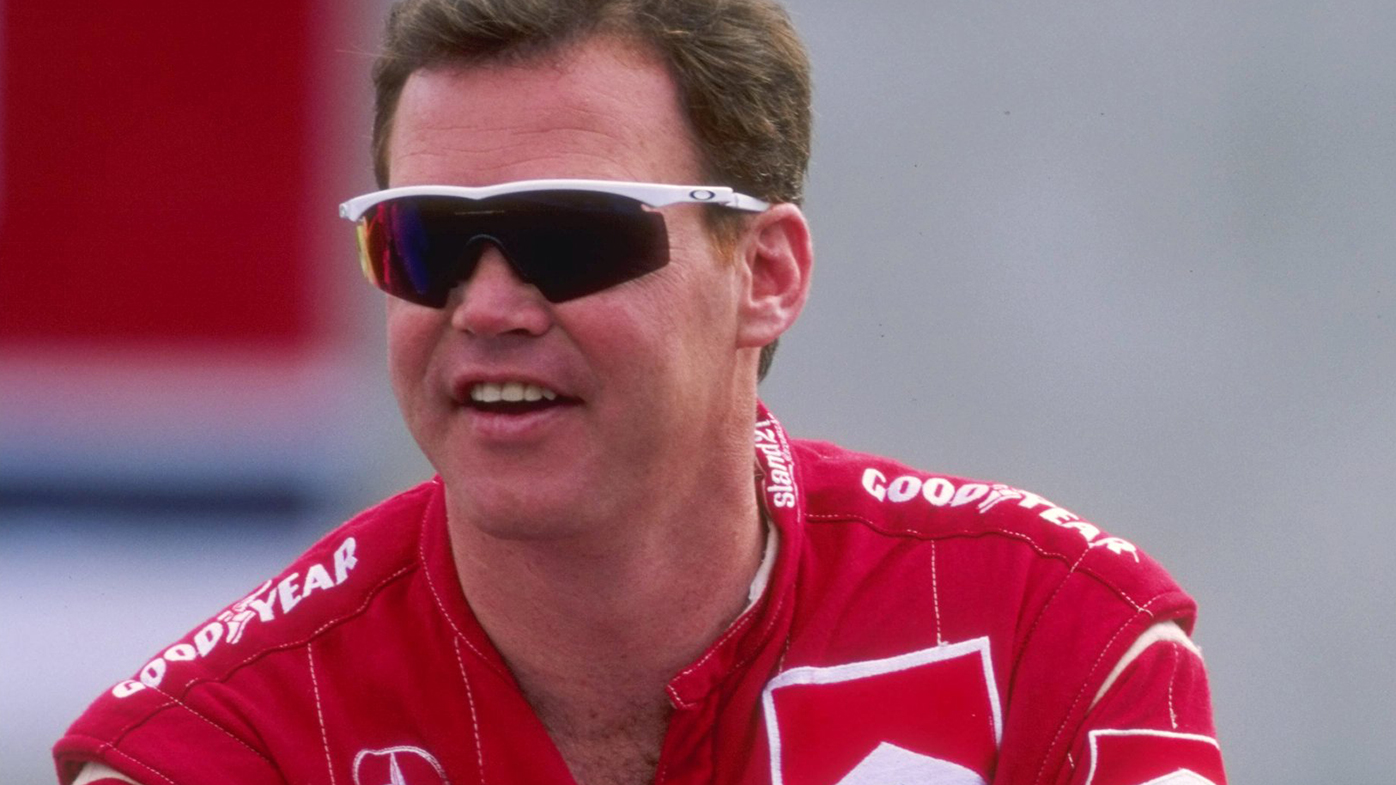
"The race car driver was great. Strong. Confident. So fulfilled. But the personal Al Jr wasn't strong at all."
All-night drug binges at home with his then-wife Shelley weren't uncommon, fuelled by cocaine and marijuana. Unser Jr lamented that, unlike today where drug testing is common, there were little or no consequences for his driving career.
But he wouldn't be drawn when asked how many titles he might have won had he stayed clean.
"Had I had my life in order, who knows? There was races that I won that I shouldn't have, and there was races I lost that I should have won," he acknowledged.
"So, I don't know. Honestly, just to have had the career that I did was a blessing."
Fall from grace
That career hit a hurdle in 1995. Driving for the all-conquering Penske team, Unser Jr and his teammate, Emerson Fittipaldi, both failed to qualify for the Indy 500.
It was a massive shock, described by Unser Jr as "the biggest shame I had felt in my life."
Returning home to Albuquerque, Unser Jr and Shelley "got into our drugs right away."
"I needed to numb myself into oblivion."
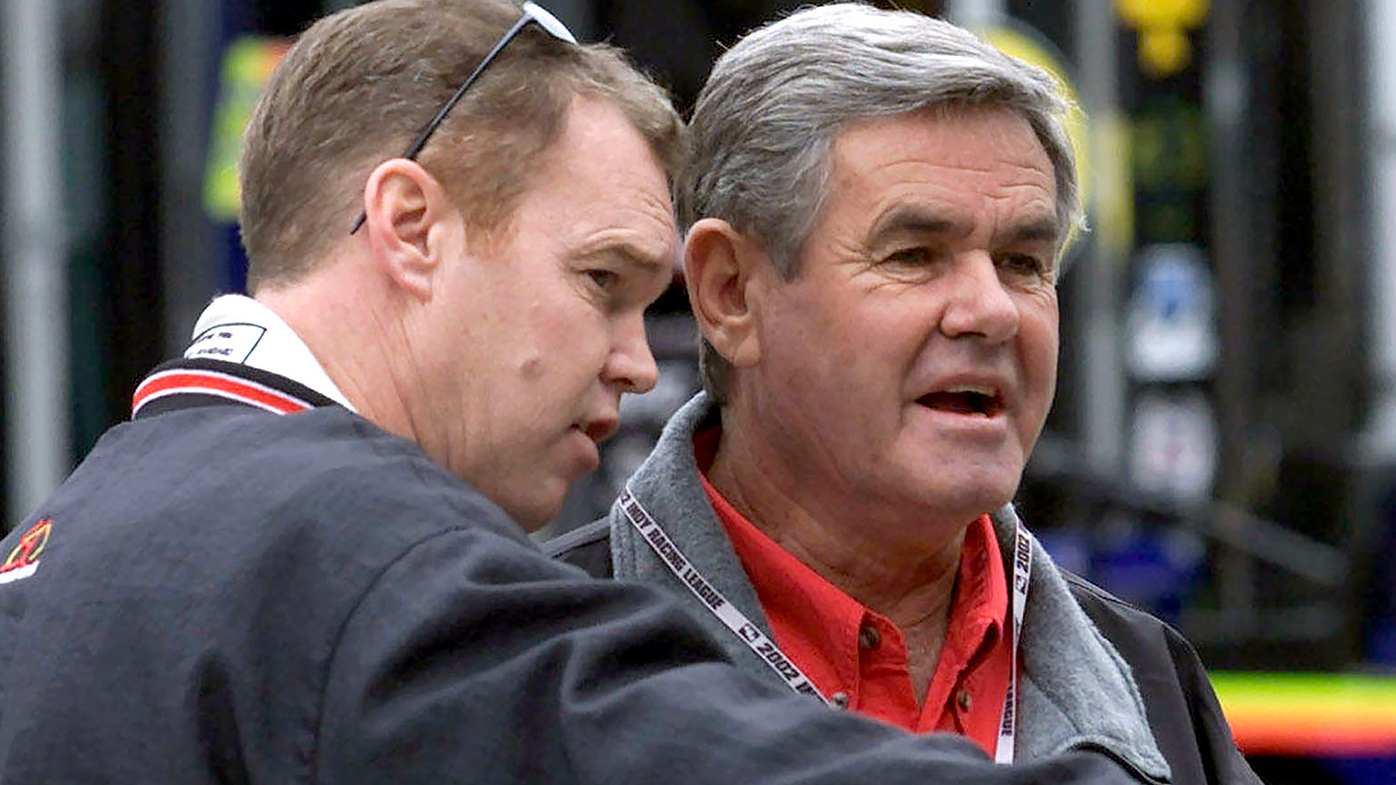
Being home when he should have been at the Indianapolis Motor Speedway "put me into a mental spin. I got dizzy and almost collapsed. This was the first time I felt true, deep depression."
Looking back with the benefit of nearly three decades of hindsight, Little Al pinpoints that race as the catalyst for the disasters that would follow.
"That was a tremendous amount of pain. No matter what we did we couldn't go fast enough," he explained.
"It was a huge, huge setback and a massive amount of adversity.
"But looking back now, that was the way God intended it to be."
Hitting rock bottom
By the end of 1996, Unser Jr had finished in the top five of the IndyCar championship 11 times in the past 12 seasons.
But as his life spiralled out of control, so did his racing career. He split with Shelley, and despite continuing as a full-time IndyCar driver through until 2003, the best he could manage was sixth in his final year.
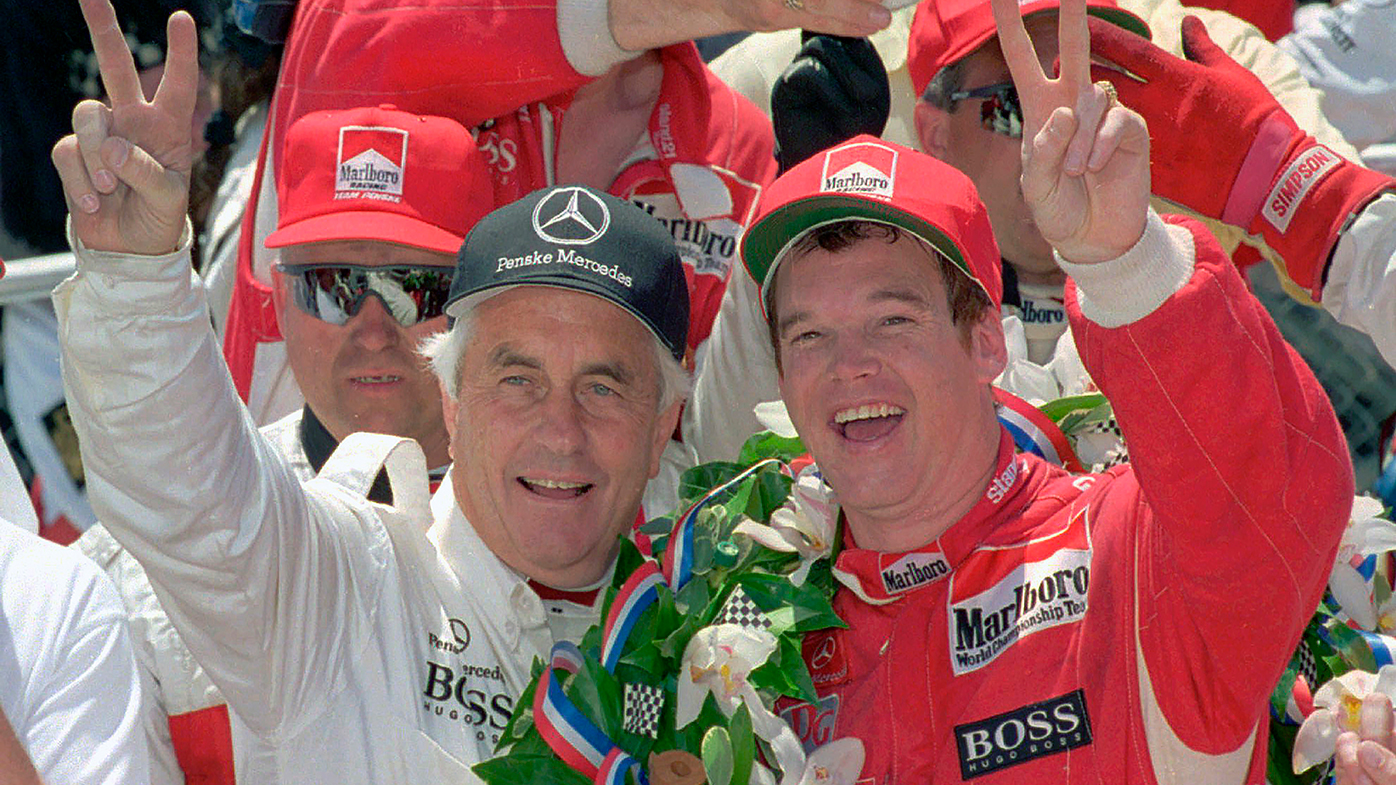
He was fired by Penske at the end of 1999, a season that ended in tragedy. Unser Jr's teammate, Gonzalo Rodriguez, was killed in an accident at Laguna Seca in September, while the following month, Greg Moore, who was to have joined Penske in 2000, died after a horrible crash at the final race of the year in California.
Unser Jr's career fizzled out in a manner that doesn't befit his status in the sport. In 2002, he was arrested and charged with domestic violence, after an altercation with his then-girlfriend Gina following a night out in Indianapolis.
It prompted ESPN.com to publish a story that finally made public his drug use and drinking.
"Nothing would ever be the same," Unser Jr wrote.
"It was a complete takedown of my career. It was devastating. I was so angry, I wanted to sue (journalist) Robin Miller into oblivion.
"But I couldn't sue him because everything in the story was true."
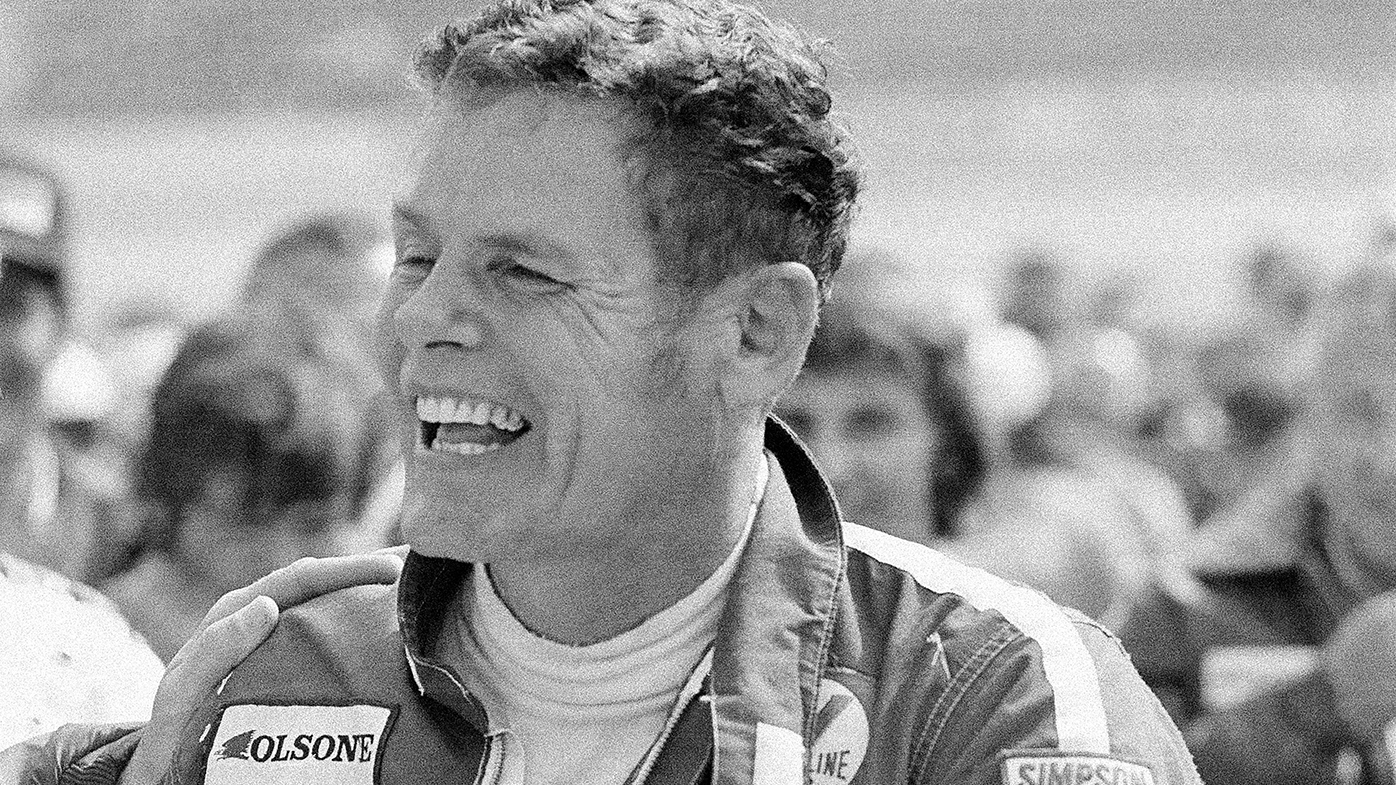
He kept racing, even winning at Texas in 2003, but by 2007 it was all over. His final race was a disappointing 26th placed finish at the Indy 500, five laps behind the winner.
During a stint in rehab in early 2012 Unser Jr told a psychiatrist he was going to kill himself, leading to the moment he put a gun to his head on his 50th birthday.
"The reality of actually pulling the trigger overwhelmed me," Unser Jr wrote, promising to kill himself the following morning. By the next day, the urge to fire the gun had lessened. It was a cycle that repeated itself for several weeks, on what he called an "endless loop."
"Without a doubt 2012 was the worst year of my life," he told Wide World of Sports.
"But it was something I had to get through, and I did. Things slowly improved, one step at a time."
"Now I'm with a fantastic race team, they've given me the huge responsibility of helping the young kids on their first step out of go-karts.
"It's a chance for me to pass on what was given to me by my dad and my uncle.
"It's really something when you suggest to a young driver that they try something and then they come back with a huge smile on their face because it helped them."
That opportunity to work with young drivers came through Future Star Racing, which supports young drivers that don't have the resources to make it on their own.
Unser Jr says that these days he can pass any drug test he takes, as he works to rebuild his self-worth and self-esteem.
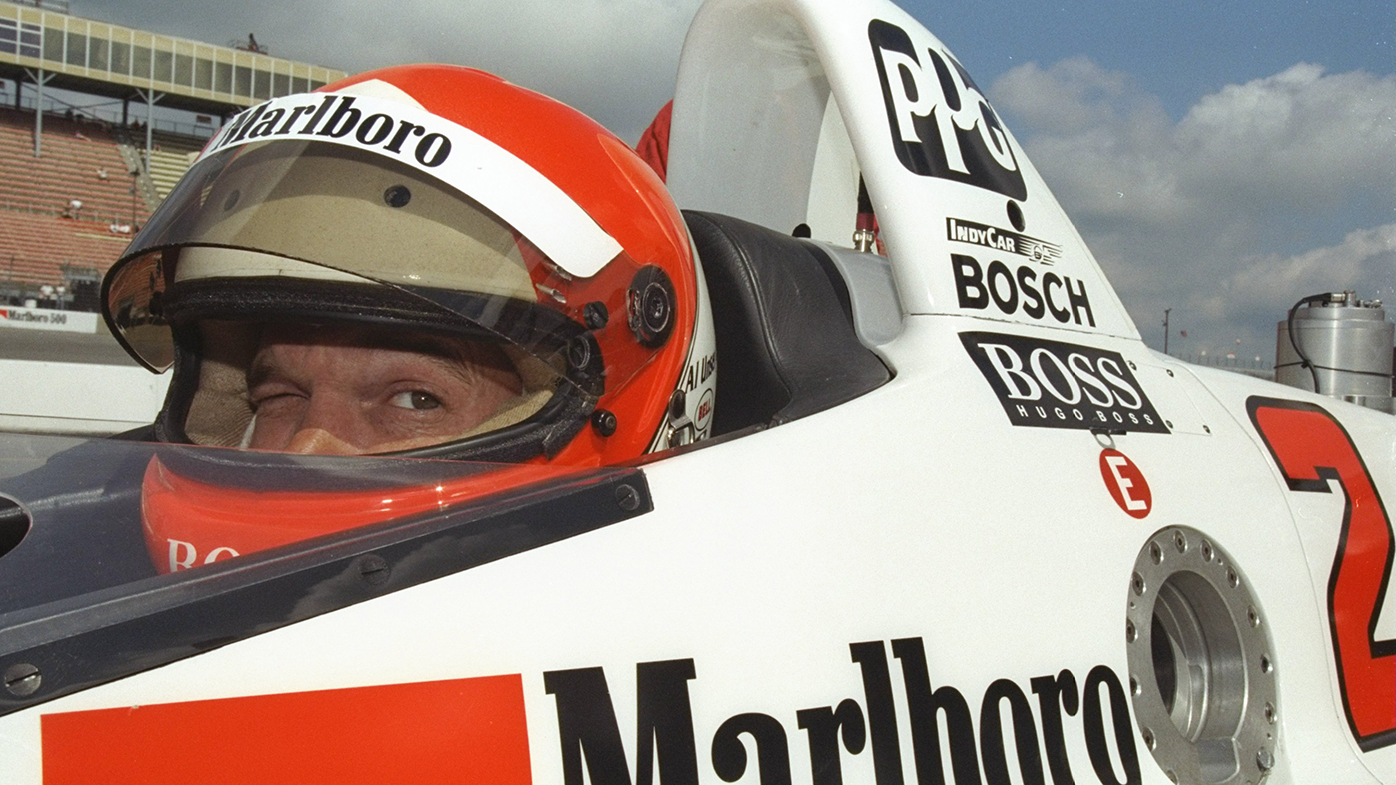
The book, he says, is one way of doing that.
"We did it during COVID-19, and I'd never written anything about my career, so I just thought it was time to get the story down," he explained.
"I wanted to tell the truth about my personal life. I prayed a lot about it and I feel good about it.
"By telling my story about my private life hopefully it will help somebody with a substance abuse disorder to get help.
"The truth about my personal life puts my racing career into context.
"There was a whole lot of pain, and finding Jesus was a big step. Meeting Norma, who's now my wife, was important. There were a lot of small steps along the way, rather than one big leap."
https://twitter.com/alunserjr/status/1516390992190054410?ref_src=twsrc%5EtfwHaving just turned 60, Unser Jr can finally look forward to the future.
"Mentally I'm so much better than I was when I was younger. I was so selfish back then," he concedes.
"Today I really appreciate the friends and family I have around me.
"I'm definitely proud that I came out of it. Without the trials and tribulations of my life I wouldn't be who I am today."
If you or anyone you know needs immediate support, contact Lifeline 13 11 14, Suicide Call Back Service 1300 659 467 or Beyond Blue 1300 22 4636. In an emergency, call 000.
For a daily dose of the best of the breaking news and exclusive content from Wide World of Sports, subscribe to our newsletter by clicking here!
"I felt more isolated and alone than at any other time in my life," Al Unser Jr wrote in his autobiography, A Checkered Past.
"The choice was stark: the bottle or the gun? I chose the gun. My fiftieth birthday seemed like a good time to end it all.
"After I put the gun to my head, I couldn't pull the trigger. I slowly set it back down."
READ MORE: 'Terrible' airborne crash mars Indy 500
READ MORE: Ricciardo's F1 season from hell continues
READ MORE: Devastated captain's admission after blunder
On the surface, Unser Jr had it all. But as the passage above confirms, the two-time winner of the Indy 500, two-time IndyCar series champion, and member of one of America's most famous racing dynasties was battling more than his opponents during his storied career.
What didn't come to light until the latter stages of his time in racing was the drug addiction and alcoholism. His life, so perfect to his legion of fans, unravelled to the extent that suicide seemed the only way out.
Stan Sport is the only place to watch the 2022 INDYCAR Series with every race streaming ad free, live and on demand. Start your free Stan Sport trial here!
Speaking to Wide World of Sports about the downward spiral that played out through his 30s and 40s, Unser Jr laughed when it was suggested the last 10 years have been like a second chance for him.
"Are you kidding me? I've been given third and fourth chances," he said.

As he recounted in the book, Unser Jr had reached a point where he felt he just couldn't continue.
"I was covered in a darkness that doesn't happen overnight," he wrote.
"It was a long journey from the top of the tallest mountain to the lowest trench in the ocean. The weight of each failure was crushing.
"When did I become a drug addict and an alcoholic? I don't know. There is no simple test to confirm you are an addict. I had a long, slow fall from grace."
The IndyCar star
Unser Jr was a fully fledged star of the American racing scene by the mid-1980s. He came from racing royalty - his father, Al Unser, became the second man ever to win the Indy 500 four times, while his uncle, Bobby, won the race three times.
Little Al, as he was known, was runner-up in the 1985 IndyCar championship, beaten by a single point by none other than his father.
He finished second again in 1988, before breaking through to claim the title in 1990. He added another championship in 1994, the same year he won the Indy 500 for the second time, having taken his maiden win two years earlier.

"I feel truly blessed that I was able to achieve what I accomplished," he said.
"There's so many people that don't even qualify for the Indy 500, let alone win it twice.
"My career as a successful IndyCar driver, I had a lot of fun doing it. My life has been a true blessing."
But as he admits in the book, there were two Al Unser Juniors during these good times. The world saw the successful race car driver at the top of his game, winning one of the world's most prestigious races.
His private life, however, was already unravelling.
"My personal life was a struggle. Too much partying, too often. Too many women. I was weak as a father," he wrote.

"The race car driver was great. Strong. Confident. So fulfilled. But the personal Al Jr wasn't strong at all."
All-night drug binges at home with his then-wife Shelley weren't uncommon, fuelled by cocaine and marijuana. Unser Jr lamented that, unlike today where drug testing is common, there were little or no consequences for his driving career.
But he wouldn't be drawn when asked how many titles he might have won had he stayed clean.
"Had I had my life in order, who knows? There was races that I won that I shouldn't have, and there was races I lost that I should have won," he acknowledged.
"So, I don't know. Honestly, just to have had the career that I did was a blessing."
Fall from grace
That career hit a hurdle in 1995. Driving for the all-conquering Penske team, Unser Jr and his teammate, Emerson Fittipaldi, both failed to qualify for the Indy 500.
It was a massive shock, described by Unser Jr as "the biggest shame I had felt in my life."
Returning home to Albuquerque, Unser Jr and Shelley "got into our drugs right away."
"I needed to numb myself into oblivion."

Being home when he should have been at the Indianapolis Motor Speedway "put me into a mental spin. I got dizzy and almost collapsed. This was the first time I felt true, deep depression."
Looking back with the benefit of nearly three decades of hindsight, Little Al pinpoints that race as the catalyst for the disasters that would follow.
"That was a tremendous amount of pain. No matter what we did we couldn't go fast enough," he explained.
"It was a huge, huge setback and a massive amount of adversity.
"But looking back now, that was the way God intended it to be."
Hitting rock bottom
By the end of 1996, Unser Jr had finished in the top five of the IndyCar championship 11 times in the past 12 seasons.
But as his life spiralled out of control, so did his racing career. He split with Shelley, and despite continuing as a full-time IndyCar driver through until 2003, the best he could manage was sixth in his final year.

He was fired by Penske at the end of 1999, a season that ended in tragedy. Unser Jr's teammate, Gonzalo Rodriguez, was killed in an accident at Laguna Seca in September, while the following month, Greg Moore, who was to have joined Penske in 2000, died after a horrible crash at the final race of the year in California.
Unser Jr's career fizzled out in a manner that doesn't befit his status in the sport. In 2002, he was arrested and charged with domestic violence, after an altercation with his then-girlfriend Gina following a night out in Indianapolis.
It prompted ESPN.com to publish a story that finally made public his drug use and drinking.
"Nothing would ever be the same," Unser Jr wrote.
"It was a complete takedown of my career. It was devastating. I was so angry, I wanted to sue (journalist) Robin Miller into oblivion.
"But I couldn't sue him because everything in the story was true."

He kept racing, even winning at Texas in 2003, but by 2007 it was all over. His final race was a disappointing 26th placed finish at the Indy 500, five laps behind the winner.
During a stint in rehab in early 2012 Unser Jr told a psychiatrist he was going to kill himself, leading to the moment he put a gun to his head on his 50th birthday.
"The reality of actually pulling the trigger overwhelmed me," Unser Jr wrote, promising to kill himself the following morning. By the next day, the urge to fire the gun had lessened. It was a cycle that repeated itself for several weeks, on what he called an "endless loop."
"Without a doubt 2012 was the worst year of my life," he told Wide World of Sports.
"But it was something I had to get through, and I did. Things slowly improved, one step at a time."
"Now I'm with a fantastic race team, they've given me the huge responsibility of helping the young kids on their first step out of go-karts.
"It's a chance for me to pass on what was given to me by my dad and my uncle.
"It's really something when you suggest to a young driver that they try something and then they come back with a huge smile on their face because it helped them."
That opportunity to work with young drivers came through Future Star Racing, which supports young drivers that don't have the resources to make it on their own.
Unser Jr says that these days he can pass any drug test he takes, as he works to rebuild his self-worth and self-esteem.

The book, he says, is one way of doing that.
"We did it during COVID-19, and I'd never written anything about my career, so I just thought it was time to get the story down," he explained.
"I wanted to tell the truth about my personal life. I prayed a lot about it and I feel good about it.
"By telling my story about my private life hopefully it will help somebody with a substance abuse disorder to get help.
"The truth about my personal life puts my racing career into context.
"There was a whole lot of pain, and finding Jesus was a big step. Meeting Norma, who's now my wife, was important. There were a lot of small steps along the way, rather than one big leap."
https://twitter.com/alunserjr/status/1516390992190054410?ref_src=twsrc%5EtfwHaving just turned 60, Unser Jr can finally look forward to the future.
"Mentally I'm so much better than I was when I was younger. I was so selfish back then," he concedes.
"Today I really appreciate the friends and family I have around me.
"I'm definitely proud that I came out of it. Without the trials and tribulations of my life I wouldn't be who I am today."
If you or anyone you know needs immediate support, contact Lifeline 13 11 14, Suicide Call Back Service 1300 659 467 or Beyond Blue 1300 22 4636. In an emergency, call 000.
For a daily dose of the best of the breaking news and exclusive content from Wide World of Sports, subscribe to our newsletter by clicking here!
https://ift.tt/7ZnE8GL//

No comments:
Post a Comment